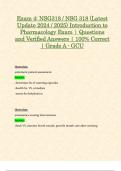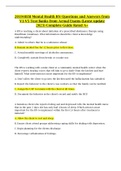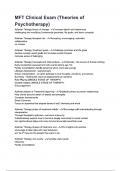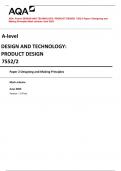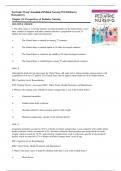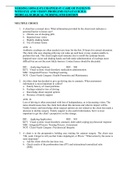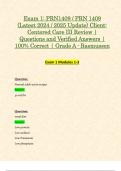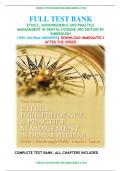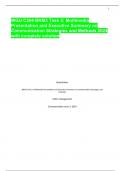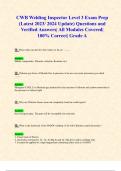Exam (elaborations)
Exam 4: NSG318 / NSG 318 (Latest Update 2024 / 2025) Introduction to Pharmacology Exam | Questions and Verified Answers | 100% Correct | Grade A - GCU
- Course
- NSG 318 (NSG318)
- Institution
- Grand Canyon University
Exam 4: NSG318 / NSG 318 (Latest Update 2024 / 2025) Introduction to Pharmacology Exam | Questions and Verified Answers | 100% Correct | Grade A - GCU Question: antiemetic patient assessment Answer: -determine hx of vomiting episodes -health hx, VS, urinalysis -assess for dehydration ...
[Show more]
